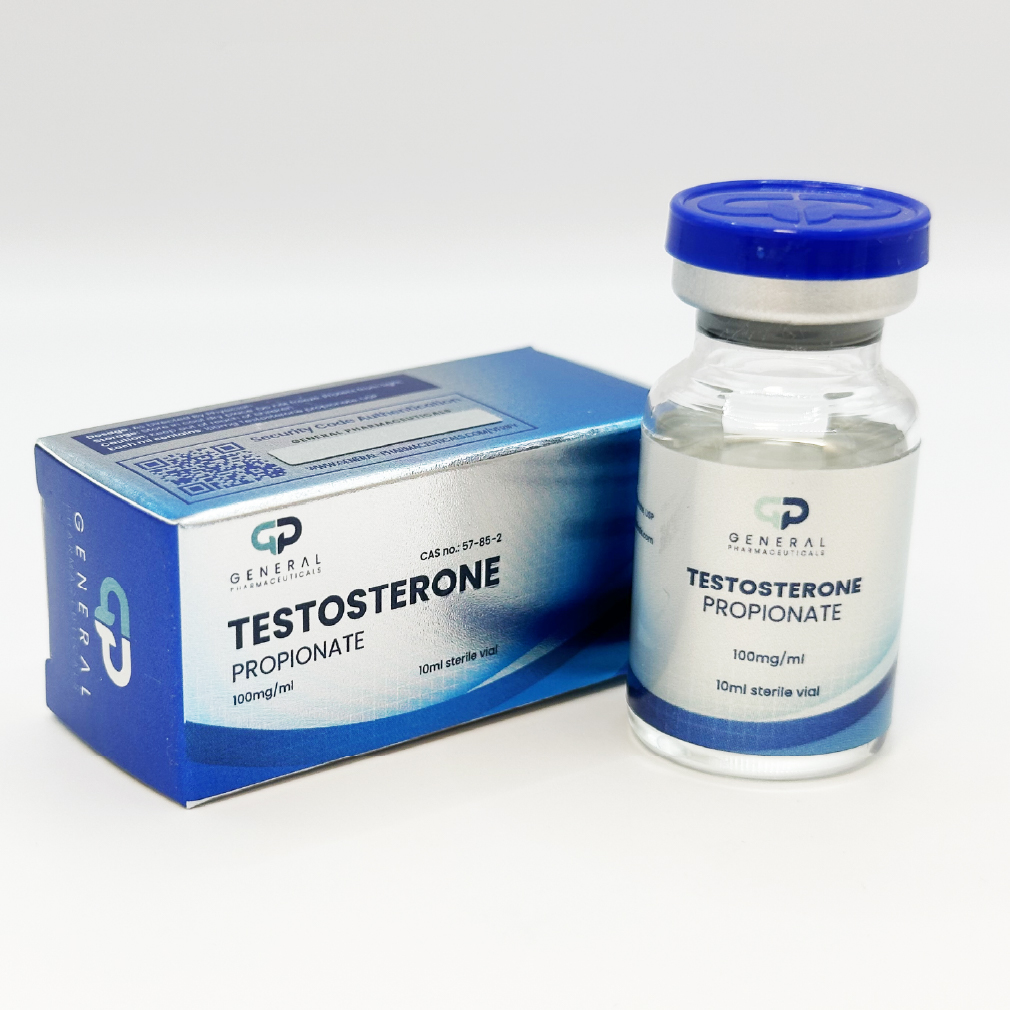
Testosterone propionate
Testosterone propionate is a synthetic form of testosterone, an essential male sex hormone. It is an esterified version of testosterone, intended for intramuscular injection, which allows for a slower release into the bloodstream compared to non-esterified testosterone. This form is used medically to address conditions related to testosterone deficiency.
Medical Uses
Testosterone propionate is prescribed for several medical conditions:
- Hypogonadism: It treats males with low testosterone levels, alleviating symptoms like low libido, fatigue, and decreased muscle mass.
- Delayed Puberty: It helps adolescent boys with delayed puberty by inducing the development of secondary sexual characteristics.
- Hormone Therapy for Transgender Men: Used in masculinizing hormone therapy to develop male secondary sexual characteristics.
- Breast Cancer: Occasionally used in women to treat hormone-sensitive breast cancer.
- Anemia: In some instances, it helps stimulate red blood cell production in certain anemias.
Mechanism of Action
Testosterone propionate exerts its effects through several mechanisms:
- Androgen Receptor Binding: It binds to androgen receptors in various tissues, promoting the development of male characteristics and anabolic effects.
- Protein Synthesis: Enhances protein production, contributing to increased muscle mass and strength.
- Erythropoiesis: Stimulates red blood cell production by increasing erythropoietin production in the kidneys and activating bone marrow.
- Nitrogen Retention: Promotes nitrogen retention in muscles, which is crucial for muscle growth and recovery.
Side Effects
While effective, testosterone propionate has potential side effects:
- Virilization in Women: Can cause masculinization, such as deepening of the voice and increased body hair.
- Fluid Retention: May lead to swelling and elevated blood pressure.
- Gynecomastia: Possible breast tissue enlargement in men due to the conversion of testosterone to estrogen.
- Mood Changes: Users might experience mood swings and aggression.
Interactions
Testosterone propionate can interact with several medications:
- Anticoagulants: May enhance the effects of blood-thinning medications.
- Corticosteroids: Concurrent use can exacerbate fluid retention and edema.
- Diabetes Medications: Can alter blood sugar levels, requiring adjustments in diabetes management.
- Other Hormones: Interaction with other hormonal therapies can influence its effects.

